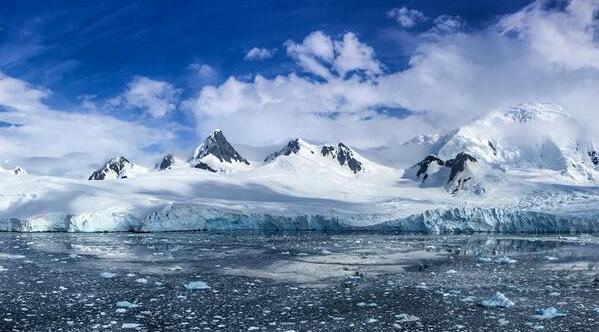 |
|
The South Pole has become a popular destination for Chinese tourists in recent years. During the 2016-2017 travel season, China exceeded Australia to become the second largest origin of tourists in Antarctic, following the United States. [Photo/Shanghai Daily] |
With increasing numbers of Chinese tourists heading for the South Pole, China is pushing through domestic legislation on Antarctic activities to regulate related human activities and better protect the environment there, officials said on Thursday.
The domestic legislation is in urgent need and needs to be speed up, said Qin Weijia, director of the Chinese Arctic and Antarctic Administration, during the 2017 annual meeting of the Asian Forum for Polar Sciences, which was held in Shanghai.
During the 2016-2017 travel season, China exceeded Australia to become the second largest origin of tourists to Antarctica, following the United States. The travel season is usually between November and March.
A total of 5,286 Chinese tourists traveled to the South Pole during that period, accounting for 12 percent of the total number of tourists, according to the International Association of Antarctic Tour Operators.
Qin added that the total number of expedition members from China’s state-organized Antarctic expedition was only around 5,000 during the past 30 years.
He said only four of the Antarctic Treaty’s 29 consultative members do not have domestic laws regarding Antarctic regulations, and that includes China. The other three are India, Poland and Ecuador.
“With international regulations on the protection of the Antarctic getting increasingly detailed, China’s domestic legislation is in urgent need,” Qin said.
He added that the international rescue operation for trapped Russian vessel Akademik Shokalskiy in the Antarctic in 2013 triggered discussion on how to share rescue bills in such Antarctic rescues.
Qin said that domestic regulations would contribute to regulating coordination on related rescues if tourists encountered accidents on the South Pole.
“The legislation aims to both regulate activities among ordinary residents like tourists, as well as state-organized activities on the Antarctic,” Qin said.
In April, Lin Shanqing, deputy director of the State Oceanic Administration of China, also said that the national legislative body has started to pay attention to the promotion of legislation on domestic Antarctic law, Xinhua News Agency reported.
Extremely popular
Eying the booming business, travel agencies in China started offering charter cruise tours to the pole.
In November and during the Spring Festival holiday, Tongcheng, an online travel operator, organized two charter cruise trips with more than 800 tourists in total to visit the South Pole.
Taking MS Midnatsol of Hurtigruten Cruises, they visited the China Antarctic Great Wall Station, watched penguins, whales and seals, crossed Drake Passage, appreciated magnificent glaciers, and tried ice-swimming in the South Pole.
Middle-aged people and seniors were the major participants, with more than 50 percent of South Pole cruise passengers aged above 50 years of age, the travel agency said.
“Celebrating the Spring Festival in the South Pole is becoming a fresh and exciting way for Chinese to experience travel overseas, and seniors are more interested than youngsters,” said Wang Kai, vice president of Tongcheng. “Visiting the South Pole and stepping onto the pure holy land is the dream of many people.”
On the website, a 23-day tour including the South Pole, Falkland Islands, Chilean Fjords and Chile, setting off on December 15, is priced at 87,999 yuan per person for the cheapest suite. The cheapest 35-day itinerary is 132,999 yuan per person.
Some travel agencies offer high-end itineraries with experts specializing in ocean, wildlife and history hosting guides and in-depth exploration experiences on the pole.
They are priced from 189,000 yuan to 665,000 yuan per person minimum on HHtravel, a luxury travel operator affiliated with Ctrip.
The majority of luxury tourists are senior managers at companies and private entrepreneurs aged between 35 and 50 years old, HHtravel said.
Deng Shen, a 28-year-old professional traveler who has been to about 100 countries, was at the South Pole in January and February this year.
She did not rely on travel agencies and booked a cruise ticket to the South Pole online herself.
“A ticket can only be secured if you book it at least six months or one year in advance of your departure because of the South Pole trip boom among Chinese,” she said.
Deng said tourists are required not to bring any food or beverages onto the pole, and they are also told to keep a distance from wildlife.
She said she did not see uncivilized behavior on the pole, but she heard it was chaotic when charter cruise ships arrived as many people jostled to the front. She said she heard that there were also some Chinese tourists chasing penguins.
“But the South Pole is the most beautiful among all these places I have ever visited. It is heaven.”
Follow this news feed: East Asia





